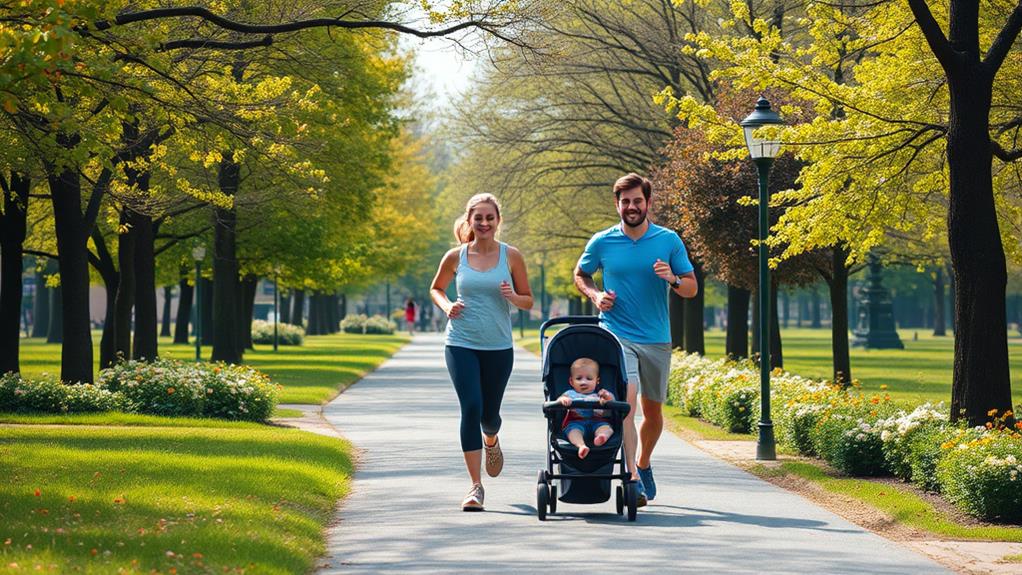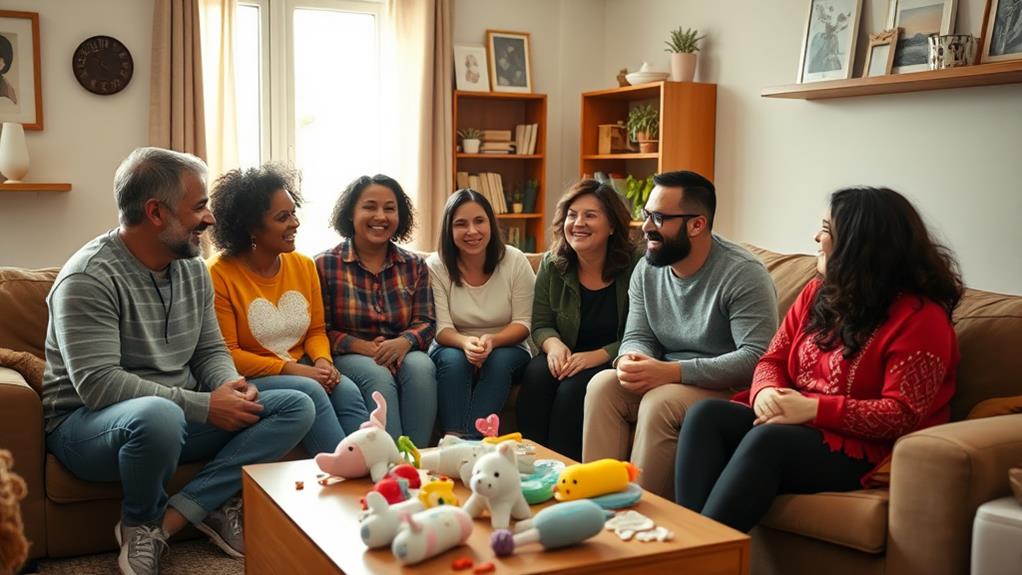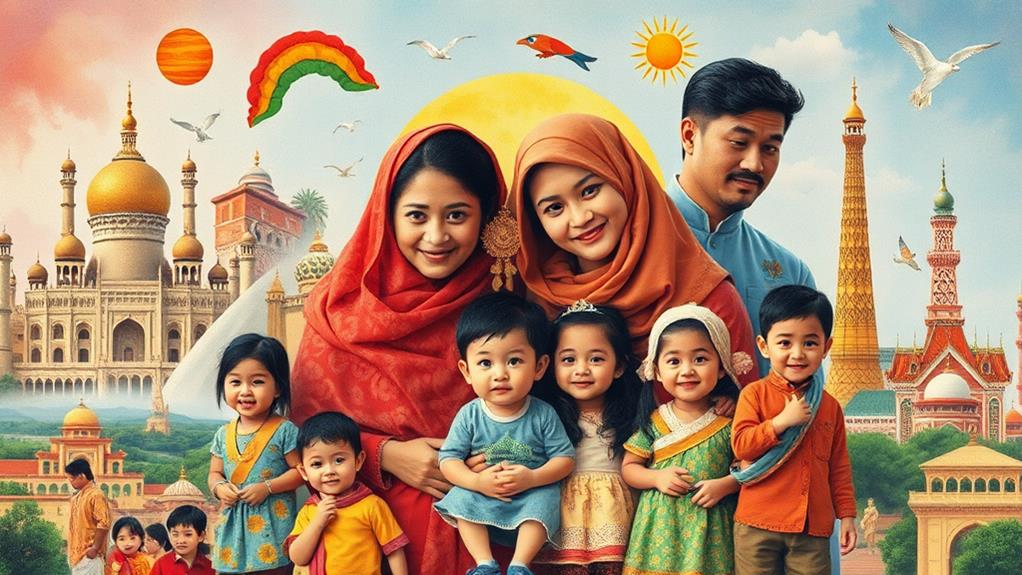When you think about the absolute best age to have a child, it’s easy to get lost in the complexities of physical health, emotional stability, and financial readiness. You might consider how your personal circumstances and cultural beliefs shape this decision. While many suggest that a woman’s 20s or early 30s are ideal for childbirth, the emotional and financial aspects can weigh heavily. So, what factors should you truly prioritize, and how do they intertwine with the concept of timing? The answers might surprise you.
Key Takeaways
- Women in their 20s to early 30s typically experience optimal pregnancy health and faster recovery post-childbirth.
- Men’s fertility can decline with age, impacting sperm quality and the ability to conceive.
- Emotional readiness, including confidence and coping mechanisms, is crucial for successful parenting.
- Strong social support networks, including family and friends, enhance parenting experiences and reduce isolation.
- Financial preparedness, including budgeting for baby-related expenses and emergency funds, is essential for stability.
Physical Considerations for Parenthood

When considering the best age to have a child, physical factors play an essential role in your decision. Your body’s health and energy levels can greatly impact your parenting experience. As you get older, your body may face increased risks during pregnancy. For instance, women in their 20s and early 30s often have a higher chance of a healthy pregnancy and delivery. Your body tends to recover faster, which means more energy for those sleepless nights with a newborn!
On the other hand, men may also experience physical changes as they age. Sperm quality can decline, which might affect fertility. Staying fit and healthy is important for both parents, as active lifestyles can help you keep up with an energetic child. You’ll want to be ready for all those fun activities, like playing soccer or going on family hikes!
Ultimately, while there’s no perfect age, being aware of your physical health can help you make the right choice. Consider your body, energy, and overall health when planning for parenthood. This thoughtful approach can lead to a more joyful and fulfilling experience as you welcome a little one into your life!
Emotional Readiness and Stability
Emotional readiness and stability are crucial factors to take into account before diving into parenthood. You want to feel confident and secure in yourself before bringing a child into the world. This isn’t just about being ready for sleepless nights; it’s about understanding your feelings and how you’ll handle the challenges of parenting.
Think about how you cope with stress. Do you have healthy ways to deal with difficult situations? Being emotionally stable means you can face those tough moments without feeling overwhelmed. It’s also about having a positive outlook and knowing that you can provide a loving environment for your child.
You’ll want to feel good about your life choices and your relationships. When you’re emotionally ready, you can form strong bonds with your baby and support their growth. It’s important to reflect on your feelings, goals, and values.
If you’re in a stable place emotionally, you’re setting the stage for a happy family life. So take your time, think things through, and make sure you’re ready for this amazing adventure.
After all, parenthood is a journey filled with joy, love, and countless unforgettable moments!
Social Support Systems

Having a solid social support system is essential as you prepare for parenthood. This means surrounding yourself with friends, family, and community members who can help you along the journey. When you have people to lean on, it makes the challenges of parenting feel less overwhelming.
You might want to start by reaching out to friends who are parents. They can share their experiences and offer valuable advice.
Don’t hesitate to ask your family for help, too; many grandparents love to step in and support you. Joining parenting groups, either online or in person, can also connect you with others who understand what you’re going through.
Having a network of supportive people means you won’t feel alone. They can cheer you on during the exciting moments, like your baby’s first steps, and offer comfort during the tough times.
Financial Preparedness
Before initiating the journey of parenthood, it’s crucial to assess your financial preparedness. Having a child is a big commitment, and being ready financially can make a huge difference. Start by taking a close look at your budget.
Think about your income and expenses. You’ll need to plan for baby supplies, healthcare, and childcare costs. It might feel overwhelming, but breaking it down into manageable steps can help!
Next, consider building an emergency fund. It’s good to have savings set aside for unexpected expenses, like a sudden medical bill or a car repair. Aim for three to six months’ worth of living expenses. This cushion will give you peace of mind.
You should also think about your job situation. Does your employer offer parental leave? If not, how will you manage time off after the baby arrives? Knowing this can help you plan better.
Lastly, don’t forget about long-term expenses, like education. It’s never too early to start thinking about saving for your child’s future.
Cultural Perspectives on Timing

While financial preparedness is essential, cultural perspectives on timing also play a significant role in deciding when to have a child. Different cultures have unique beliefs about the best age to start a family. In some places, people often have kids in their early twenties, seeing it as the norm. They believe starting young allows for more energy and time to bond with kids.
In other cultures, waiting until you’re older—perhaps in your thirties—is common. This is often because people focus on education and careers first, wanting to provide the best life possible for their children.
Understanding these cultural views can help you decide what feels right for you. Think about your background and the values you’ve grown up with. It’s also important to talk with family and friends, as their experiences can provide valuable insights.
Ultimately, the best age for you might blend your personal goals with your cultural beliefs. Remember, there’s no one-size-fits-all answer. What matters most is that you feel ready, both emotionally and culturally, to welcome a new life into your world.





